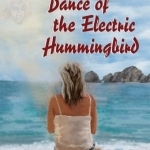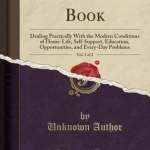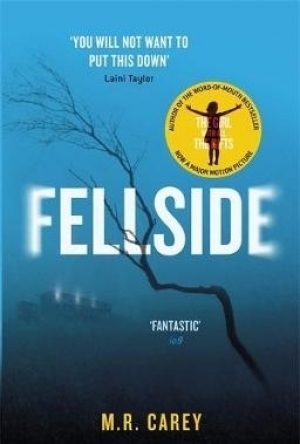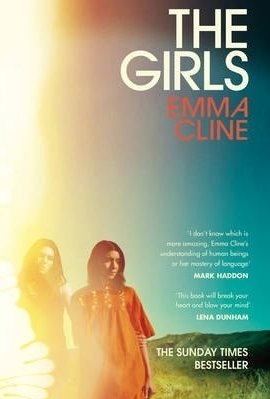Search
Search results
Main Character (1 more)
Short Chapters
Unnecessarily long (2 more)
The subplot was better than the Main Plot
Supporting Characters not given enough development
About 200 pages too long
After M.R Carey blew me away with the novel THE GIRL WITH ALL THE GIFTS i couldn't wait to read the follow up FELLSIDE. Unfortunately i was left a little disappointed, the opening was great setting up the character of Jess Moulson and why and how she has ended up in Fellside Womens prison. But once the opening court case and transfer to Fellside was complete it became a bit lackluster, with the introduction of prison politics, unrounded and redundant characters and Ghosts. Yes Ghosts! the Supernatural element to the story actually makes it feel rather stupid when compared with the darkend side of humanity the reside in the prison.
The book is approximately 500 pages long and i felt like it was a 300 page story dragged out. However if you stick with it the pay is worth it for the best part. Unfortunately the actual climax itself was an absolute mess. I found that about half way through the book i stopped caring about the main plot which focused on the supernatural part and Jess and her promise to the ghost of the little boy she has killed, and i became more interested in the subplots, involving drug smuggling, re-trials and a potential friendship/relationship with her lawyers assistant. I found that we are given some extensive time to characters who are the medical staff in the prison which proved to be way way too much for the relative small role they actual play in the story, and characters that i would have thought would have been more prominent and created much more interesting reading such as Jess' boyfriend John, her cell mate and the Prison Warden were never really fleshed out and barely anything more than inanimate object being pushed in place.
I did enjoy Jess Moulson as a main character, she is presented as a timid, repentant, emotionally and defiantly physically scarred and M.R Carey did make her a stereotypical drop out waster drug user or loud mouth bully inmate and think that is the strong credit here. Her situation does dictate her actions and decisions greatly but unfortunately it does seem like she is the only character that has that depth to her.
The book is approximately 500 pages long and i felt like it was a 300 page story dragged out. However if you stick with it the pay is worth it for the best part. Unfortunately the actual climax itself was an absolute mess. I found that about half way through the book i stopped caring about the main plot which focused on the supernatural part and Jess and her promise to the ghost of the little boy she has killed, and i became more interested in the subplots, involving drug smuggling, re-trials and a potential friendship/relationship with her lawyers assistant. I found that we are given some extensive time to characters who are the medical staff in the prison which proved to be way way too much for the relative small role they actual play in the story, and characters that i would have thought would have been more prominent and created much more interesting reading such as Jess' boyfriend John, her cell mate and the Prison Warden were never really fleshed out and barely anything more than inanimate object being pushed in place.
I did enjoy Jess Moulson as a main character, she is presented as a timid, repentant, emotionally and defiantly physically scarred and M.R Carey did make her a stereotypical drop out waster drug user or loud mouth bully inmate and think that is the strong credit here. Her situation does dictate her actions and decisions greatly but unfortunately it does seem like she is the only character that has that depth to her.

Belly Dance Fitness
Health & Fitness and Sports
App
This app contains 145 video lessons and tutorials on the art of Belly Dancing Fitness! Belly...
Erratic.
To begin with I should point out that I listened to this rather than read it, and I have to say that I found (not for the first time with American audiobooks) that the narrator detracted from the story. They chose a woman with a very slow, drawling delivery which in some ways, I imagine, was intended to emphasise the sunny, laid-back easy-going stereotype of the late 60's hippy movement. Unfortunately the actual effect was to make the book drag.
Beyond that the content of the book itself was a mixed bag of the pleasurable and the pointless.
Where Cline excelles in this book is in her portrayal of a normal adolescent female trying to fit the role society has dictated for her. It's important to note that Evie is normal - she's not in the small group of incredibly popular, socially adept, fashionably en point and appropriately presented girls of the moment, nor is she so far away from the 'norm' that she is considered especially weird. She falls firmly within the parameters of 'normal' girls who are just struggling with the 'project of their girlhood'. Nor is it just girls that Cline succeeds in painting an accurate picture of - the tribulations of Evie's mother (newley divorced and struggling to realise the relevance and attraction that society expects from her again) speak to the ongoing and endless demands of a civilisation that puts endless pressure on it's female members to adhere to a very narrow and sharply defined criteria in order to be 'acceptable'. This pressure is something I imagine most female readers of this book will relate to, regardless of age, because, of course, it is still very much a daily aspect of most girls' and womens' lives; some possibly even recognising individual situations in which they have been at some stage in their life.
Understanding and empathising with Evie then, it is disconcerting to follow her absorption into the cult; her fascination with the older girls, the ones she later reflects upon as barely more than children themselves; the ease with which she is manipulated through her desire to please her new friends and to defy her mother; the lies sher emotional side is sold and accepts, even as her more rational mind recognises that they are lies...
These are the things Cline excelles in. I can honestly say I have never read an more accurate depiction of clumsy, normal female adolescence.
Unfortunately interspersed through these parts are large tracts of pointless and incredibly, horribly flowery waffle that don't really add anything else to the story other than to repeat, endlessly the message that 'the girl who was part of the cult' had a sad and unfulfilling life afterwards.The message that she screwed up could have been delivered successfully at the beginning and reinforced at the end - it didn't need that kind of repetition.
Overall I would say that for fans of general fiction (which I'm not), and teen readers (which I am also not), this is probably a good read, just expect it to drag at times. It's not one I shall be revisiting.
Beyond that the content of the book itself was a mixed bag of the pleasurable and the pointless.
Where Cline excelles in this book is in her portrayal of a normal adolescent female trying to fit the role society has dictated for her. It's important to note that Evie is normal - she's not in the small group of incredibly popular, socially adept, fashionably en point and appropriately presented girls of the moment, nor is she so far away from the 'norm' that she is considered especially weird. She falls firmly within the parameters of 'normal' girls who are just struggling with the 'project of their girlhood'. Nor is it just girls that Cline succeeds in painting an accurate picture of - the tribulations of Evie's mother (newley divorced and struggling to realise the relevance and attraction that society expects from her again) speak to the ongoing and endless demands of a civilisation that puts endless pressure on it's female members to adhere to a very narrow and sharply defined criteria in order to be 'acceptable'. This pressure is something I imagine most female readers of this book will relate to, regardless of age, because, of course, it is still very much a daily aspect of most girls' and womens' lives; some possibly even recognising individual situations in which they have been at some stage in their life.
Understanding and empathising with Evie then, it is disconcerting to follow her absorption into the cult; her fascination with the older girls, the ones she later reflects upon as barely more than children themselves; the ease with which she is manipulated through her desire to please her new friends and to defy her mother; the lies sher emotional side is sold and accepts, even as her more rational mind recognises that they are lies...
These are the things Cline excelles in. I can honestly say I have never read an more accurate depiction of clumsy, normal female adolescence.
Unfortunately interspersed through these parts are large tracts of pointless and incredibly, horribly flowery waffle that don't really add anything else to the story other than to repeat, endlessly the message that 'the girl who was part of the cult' had a sad and unfulfilling life afterwards.The message that she screwed up could have been delivered successfully at the beginning and reinforced at the end - it didn't need that kind of repetition.
Overall I would say that for fans of general fiction (which I'm not), and teen readers (which I am also not), this is probably a good read, just expect it to drag at times. It's not one I shall be revisiting.




